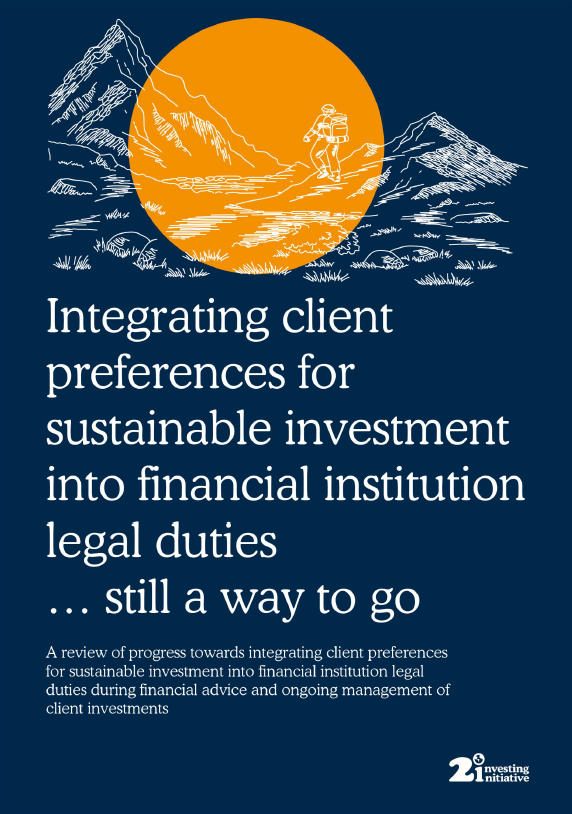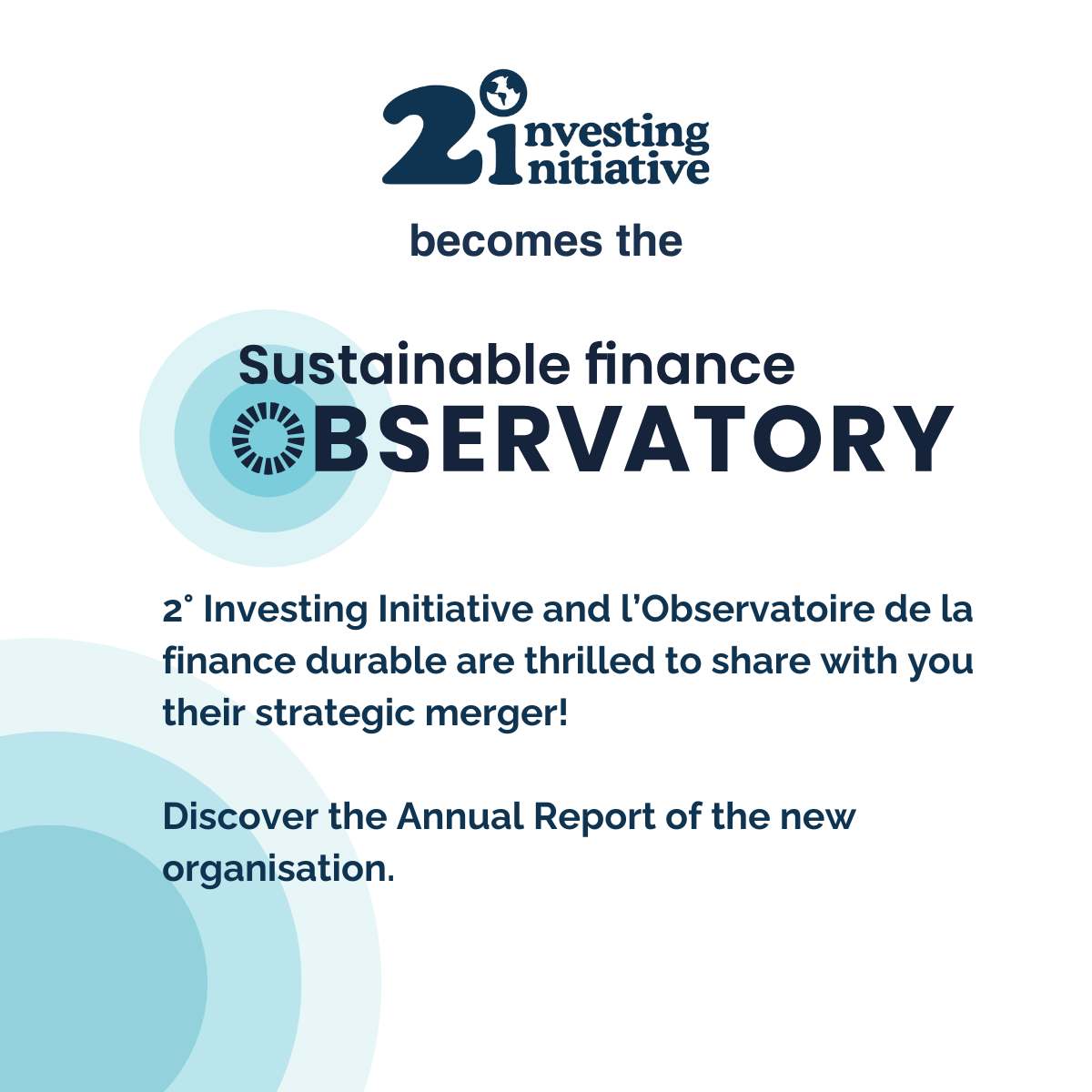The European Commission’s April Package (published in 2021) contained six amending delegated acts intended to clarify financial institution legal duties to clients in relation to sustainability. These regulatory changes integrate client sustainability preferences into investment and insurance advice; update product governance rules to take account of sustainability related objectives of the target market for a financial product; and clarify that ongoing legal duties of financial institutions should take account of sustainability risks and sustainability factors.
These recast financial institution legal duties are a critical component of the Commission’s sustainable finance strategy. They are intended to serve dual objectives of harnessing client preferences for sustainable investment in support of sustainability policy objectives and increasing investor protection through improving financial institution legal duties to clients. In this paper, Sustainable Finance Observatory (formerly 2DII) takes a closer look at these regulatory changes and the extent to which they contribute to these dual objectives.
Sustainable Finance Observatory (formerly 2DII) legal analysis reveals several critical weaknesses apparent in the package of regulatory changes to clarify financial institution legal duties:
While the suitability assessment for investment and insurance advice must now include a mandatory assessment of client sustainability preferences, the process articulated for the revised suitability assessment affords plenty of opportunity for financial institutions to influence how clients understand and express their sustainability preferences. This potential for influence will undermine the objective of establishing a process where advisors must respond in a genuine manner to client preferences for sustainable investment.
Integration of sustainability preferences into legal duties outside of the suitability assessment is patchy and incomplete. Only the insurance framework requires ongoing decision making to take account of sustainability preferences. There have been no regulatory changes to the pension framework. And for the framework for other retail products, ongoing legal duties are clarified by virtue of updating organisational requirements to include sustainability risks and sustainability factors – but there is no integration of sustainability preferences into these legal duties. In addition, there is regulatory uncertainty in relation to how sustainability related objectives in the product governance obligations intersect with the concept of sustainability preferences.
Perhaps the most damming problem of all is the regulatory concept of sustainability preferences itself. This concept is effectively the foundation stone for how financial institution legal duties are supposed to accommodate client preferences for sustainable investment – but it is an inherently flawed definition. The definition does not accommodate impact-oriented products. And neither does the concept accommodate a client’s wider sustainability motivations which are relevant to a comprehensive assessment of how a client want to invest in a sustainable manner.
We recommend several steps to improve how financial institution legal duties to clients are conceptualised in order to serve the dual objectives articulated above.
First and foremost, it is imperative to clarify the concept of sustainability preferences and wider sustainable product classification so that the regulatory framework reflects a more accurate conception of client preferences for sustainable investment and a separate category for impact-oriented financial products.
Then advisors must be properly incentivised to ensure they respond appropriately to client preferences for sustainable investment through defining further procedural safeguards for the suitability assessment.
Further integration of sustainability preferences throughout the financial regulatory frameworks and clarification of how sustainability related objectives intersects with the concept of sustainability preferences should ensure that legal duties are consistent across the board.
Finally, increased regulatory oversight and appropriate training for key staff can support and ensure the right enabling environment.
Sustainable Finance Observatory’s (formerly 2DII) sister paper in this series Fighting greenwashing … what do we really need? reviews the legislative and regulatory framework applicable to environmental impact claims in the finance sector. This sister paper also identifies a need to create a separate category for impact-oriented financial products in the context of fighting greenwashing. Taken together, these papers provide compelling evidence that the current sustainable product categorisation in the EU is not fit for purpose.
Related: Answer our consultation on assessing client sustainability preferences
Sustainable Finance Observatory (formerly 2DII) has developed a draft suitability questionnaire and draft guidance to help investment firms comprehensively assess clients’ sustainability preferences in line with the requirements of MiFID II/IDD and wider sustainability motivations. You can participate in our consultation here.
About our funder: The project leading to this application has received funding from the European Union’s Horizon 2020 research and innovation programme under grant agreement No 894345.




